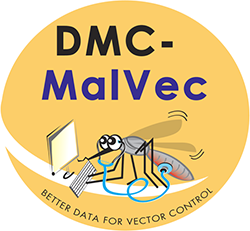Malaria, a major public health challenge
Malaria is a life-threatening disease causing more than 500,000 deaths every year in sub-Saharan Africa, mostly in children under five and pregnant women. Prevention of the disease is best achieved by vector control which, today in Africa, relies on the use of insecticides. Monitoring mosquito vector populations is an integral component of most vector control programmes and a prerequisite for effective interventions. Several individual methods are used for this task, however, in resource poor malaria endemic countries, there are many obstacles to the uptake of these protocols, as well as further challenges in organizing, interpreting and communicating vector control data.















